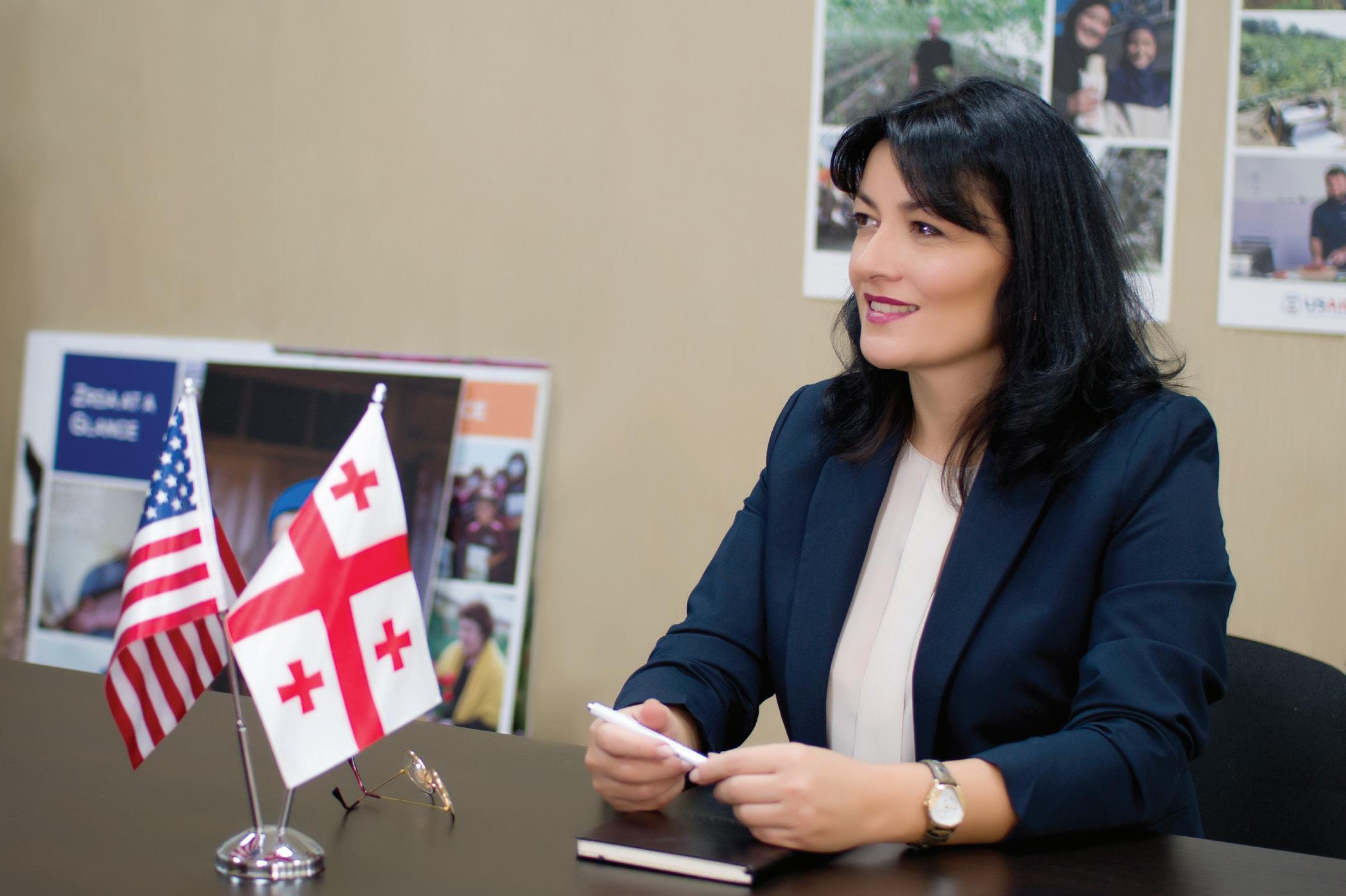
4 minute read
Sustainable Farming and Innovations in Agriculture Is a Step in the Right Direction - Diplomat Magazine
With nearly half of the Georgia workforce involved in agriculture, the promotion of best agriculture practices is imperative for the strengthening of the agriculture sector and the economy in the Republic of Georgia. While Georgia is pushing for growth in different sectors the need for support especially in the face of a raging pandemic is pivotal and the Swedish Government is rising to the occasion.
Advertisement
In this interview with Erik Illes, Head of Development Cooperation and Deputy Head of the Swedish Embassy in Georgia, he highlighted the objectives and strategies for the current agricultural cooperation between Sweden and Georgia. Agriculture sector development as such is not a strategic priority area for Sweden but features strongly in Sweden’s inclusive market development partnership with Georgia.
How would you assess the current agricultural cooperation between Sweden and Georgia, and where do you see potentials for its development?
Sweden supports Georgia’s SME development, supports the increase of Georgia’s competitiveness, and the implementation of DCFTA. While working with SMEs, we focus more on high value-added sector development, also in Agriculture. For instance, we work with International Finance Corporation on food safety standards and the export potential of honey, which is a high value-added export product from Georgia. We also offer SMEs including those operating in the agriculture sector guarantees to improve access to finance.
Swedish development cooperation’s key targets also include those in agribusiness; agro tourism through which we support those living in rural areas or those actively practicing farming; and we support people living in poverty.
We have also started a partnership with Georgian Farmers’ Association to provide them with organizational and strategic support for benefits, enhanced services, and advocacy to more than 4, 000 farmers under the umbrella body.
It was announced that Georgia will receive € 1.16 million from EU, Sweden and Austria for agricultural development in the frames of Green Economy: Sustainable Mountain Tourism and Organic Agriculture (GRETA) project, what are the main highlights of the project and what are your expectations?
€ 6.8 Million from the European commission, Austria, and Sweden, are intended for the green economy, mountain tours, and organic agriculture in the highlands, and the mountainous area of Georgia around Imereti, Racha, and Svaneti. This fund is aimed to facilitate the improvement of the business environment and the creation of new economic income opportunities in sustainable mountain tourism and organic culture. We are pursuing this actively in order to reduce poverty, exclusion, and to increase trade opportunities in the selected mountainous areas of Georgia. For me, it is also an example of partnership between the Georgia and Team Europe. Austria has an extensive experience of working with mountain tourism, therefore, we thought it was a good idea to partner with Austria. In this sense, we are going to be combining our different areas of expertise.
The project has announcements for funding local initiatives in agriculture as well as in the tourism sector. Our expectations are
locally driven solutions and developments, with local based skills and knowledge. Also, we expect all of these to be accounted for through funds which the GRETA project offers.
What are the best practices in Swedish agriculture that might work well in Georgia?
Sweden and Georgia are very different contexts. I mentioned that in Georgia 40% of the workforce is in the agricultural sector, but this sector contributes only 8% of the GDP. In Sweden, only 1.5% of the total employment is found in agriculture, and this 1.5% amounts to some 2% of the Swedish GDP. Between the 1950s and the 1970s, we witnessed a very drastic reduction in terms of people working in agriculture, to the tune of about 60% within this 20-year period. That was when people began to advance for industrial jobs and later on to post-industrial employment opportunities. So in that sense, it is quite different, but I think there are lots of lessons to be learned by Georgia, and one area is the transition towards a green economy.
What we see in Sweden now is that there is a strong focus on quality, understanding the market and diversification of products. Of course, we are also focused on organic farming, because that’s where and when we can see that it becomes more inclined towards high value-added products and of course innovations in agriculture. Sweden has a highly developed agriculture, infrastructure, and technology.
Which areas of Georgian agriculture do you think will be interesting for Swedish investors?
Sustainable farming and Innovations in agriculture are especially interesting for Swedish investors. I think there will be interests in terms of providing technology and know-how to provide qualitative service delivery and innovations in the Georgian agriculture sector.
Overall, how has the pandemic affected the relations between Georgia and Sweden and the plans and projects of your embassy?
The damage has affected everyone. To a large extent, what we have done to manage this is we have been working with our Georgian partners to adapt ongoing programs to the COVID-19 situation. We also provided some direct humanitarian, direct relief assistance and to address vulnerabilities, and this we have done in partnership with the Georgian Red Cross Society. We also have in other areas; like the support we provide for gender equality. I think a lot of things have been done but we are not
through this difficult situation yet. The pandemic situation is still very much with us, and we are thinking every day about how we can adapt our operations, our safety, and our partnerships to the current situation.











